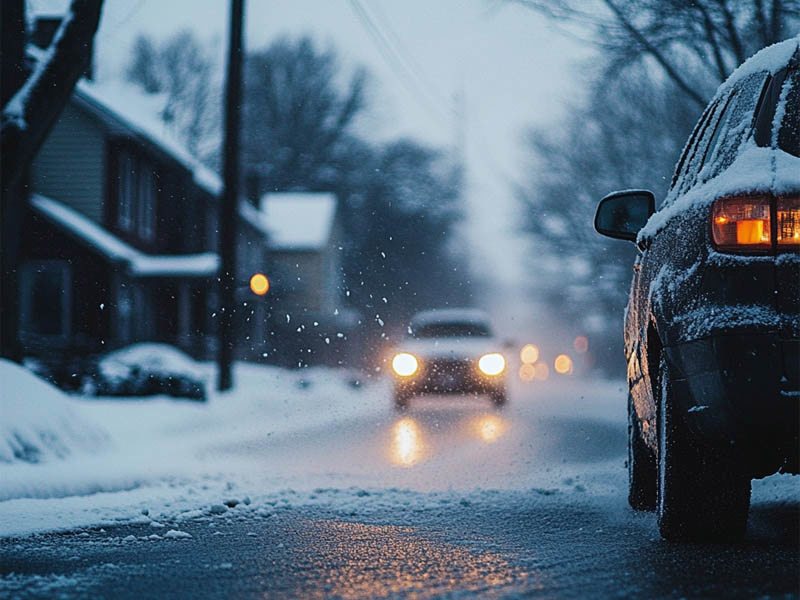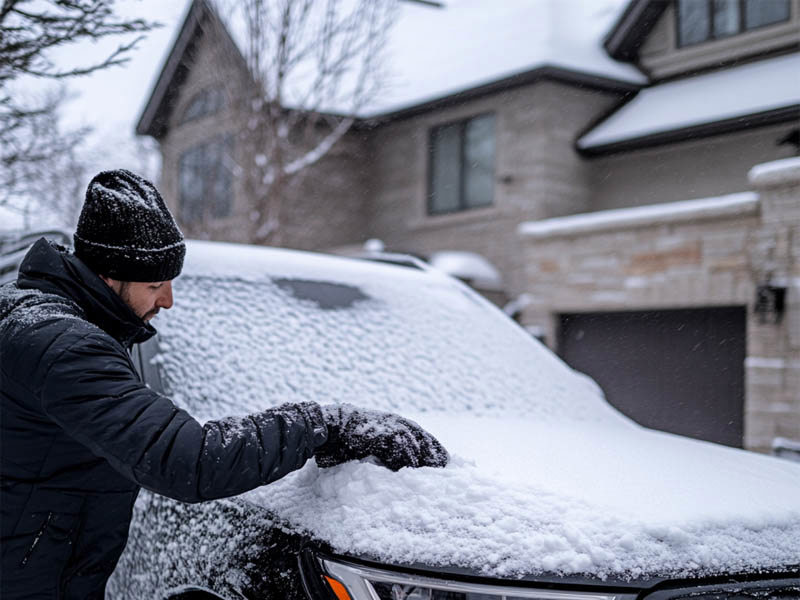
Driving in snowy and icy conditions is no doubt challenging, but with the right preparation and caution, you can ensure you stay safe on the road.
Whether preparing for your daily commute or a winter road trip with the family, it’s important you know how to drive in the snow and avoid accidents.
In this blog, we’ll talk you through the key steps for preparing for a drive in the snow and how to drive safely when on the road. We discuss:
The first thing you should do is check the weather forecast before making any plans and driving. If it's forecast for heavy rain, we’d recommend staying at home as this will be safer (unless the journey is an absolute necessity).
Listen to the travel advice on the news/radio/social media and consider your priorities before driving in the snow.
If you NEED to drive, plan your journey thoroughly. We’ve become reliant on sat-navs and technology in recent years, and while they are great in most situations, extreme snow isn’t their area of expertise.
They might take you down a country lane or a road that hasn’t been gritted - this is a big no-no. Plan ahead and stick to the main roads in your local area.
One of the most important things to remember when driving in the snow is to allow for extra time. Snow and ice are a deadly combination on the roads, and if not treated with respect, it could be fatal. It’s better to be safe than sorry.
Leave earlier than usual to avoid feeling pressured to drive faster, and don’t be afraid to drive below the speed limit if you feel it's necessary. Also, keep plenty of distance between you and the car ahead, as braking distances are much longer.

Snow often comes hand in hand with reduced visibility on the road, therefore, it’s essential to do everything in your power to make your visibility as good as possible.
Ensure your windscreen wipers are in top condition, as worn-out ones won’t clear snow and slush as effectively, leaving your view obstructed.
Your tyres are equally important. Properly inflated tyres with plenty of tread gives you the grip required for driving in snow and ice. We’d recommend checking the condition of your tyres before winter kicks in.
If you live in an area with frequent heavy snowfall, consider switching to winter tyres, which offer better traction on snowy and icy roads.
Although this may seem extreme, you never know when you’ll need an emergency kit, and it could help if you ever find yourself in a spot of bother.
Here’s what we’d recommend:
- Thermal blanket
- Warm and dry changed of clothes including boots
- Sunglassed (for glare)
- Emergency money
- Flashlight
- Ice scraper
- Shovel
- Phone charger
- Road map
- First aid kit
- Non-perishable snacks and bottled water
- Jump leads
Once you’re fully prepared to brace the elements, all that’s next is to hit the road. However, the thinking isn’t done there. Driving in snow and ice requires a different approach to regular conditions.
Here are our essential driving in snow tips:
- Clear snow and any debris from your car - We’re talking about everything here, including the bonnet, roof, windows, and lights.
- Set off gently and avoid revving the car too much - If there’s ice about and you drive a manual car, start it in a higher gear than normal and continue with that gear as you set off to avoid wheel spin.
- Get your speed right - When driving in snow, speed is the enemy. Snowy and icy roads can be slippery, so by slowing down you give yourself more time to react to hazards and avoid skidding.
- Keep a safe distance from the car in front - Snowy and slippery roads mean longer stopping distances, so it’s important to keep a safe distance between you and the car in front. Even if you’re in a rush, don’t get too close to the car in front.
- Stay visible - Visibility is usually pretty poor in snowy conditions, therefore use your headlights during the day to make sure other drivers can see you.
Looking for more winter driving advice? Check out our Winter Car and Van Care guide.
We are also one of the UK’s largest car leasing brokers, offering a range of services to suit your every need. For more, check out our latest leasing deals or call us on 0345 811 9595.
Originally posted: 23rd October 2024

